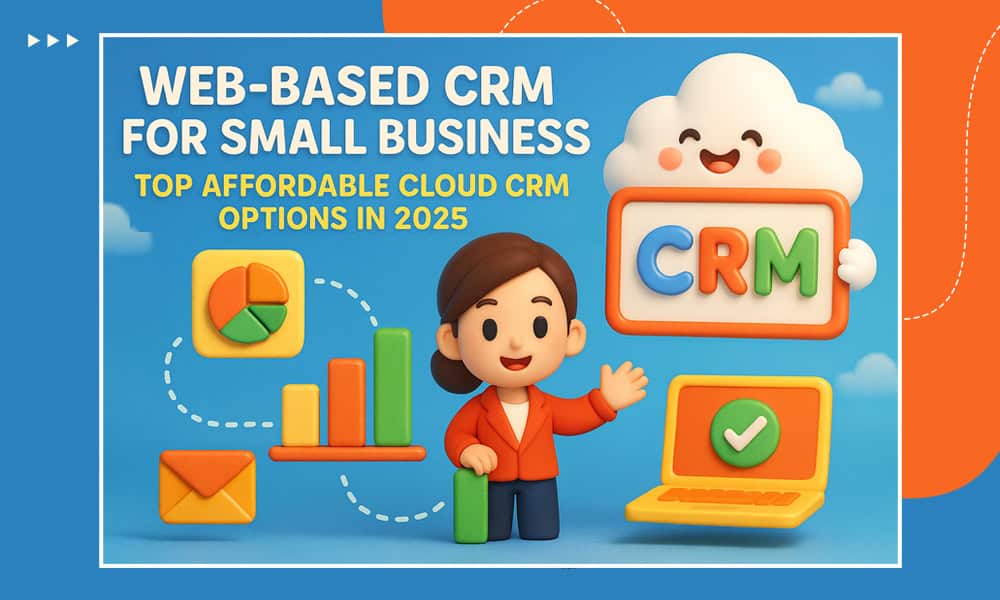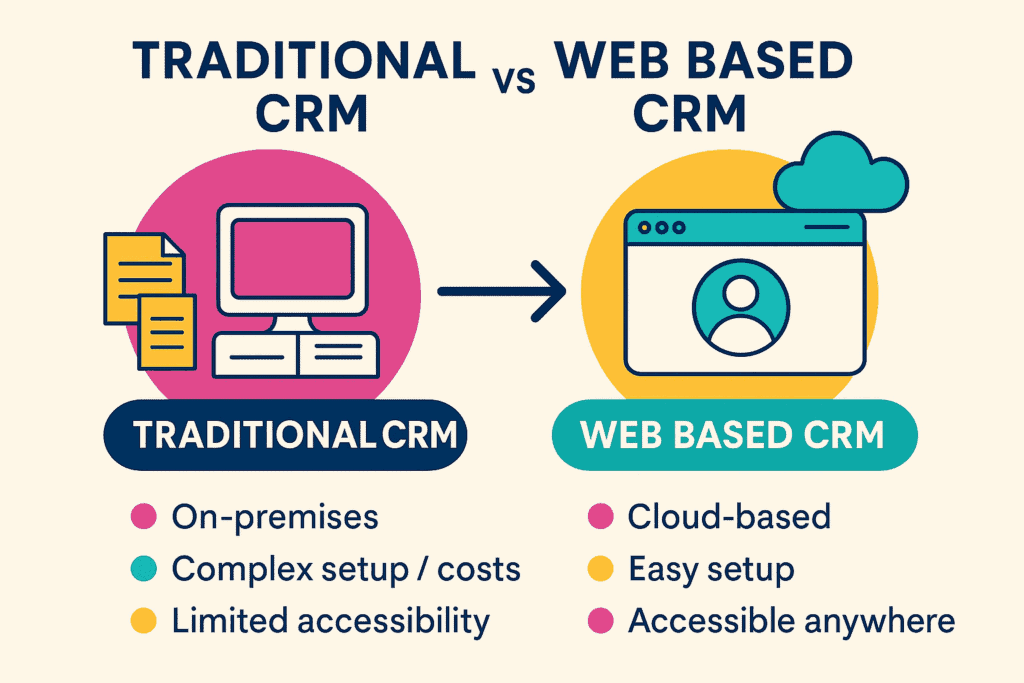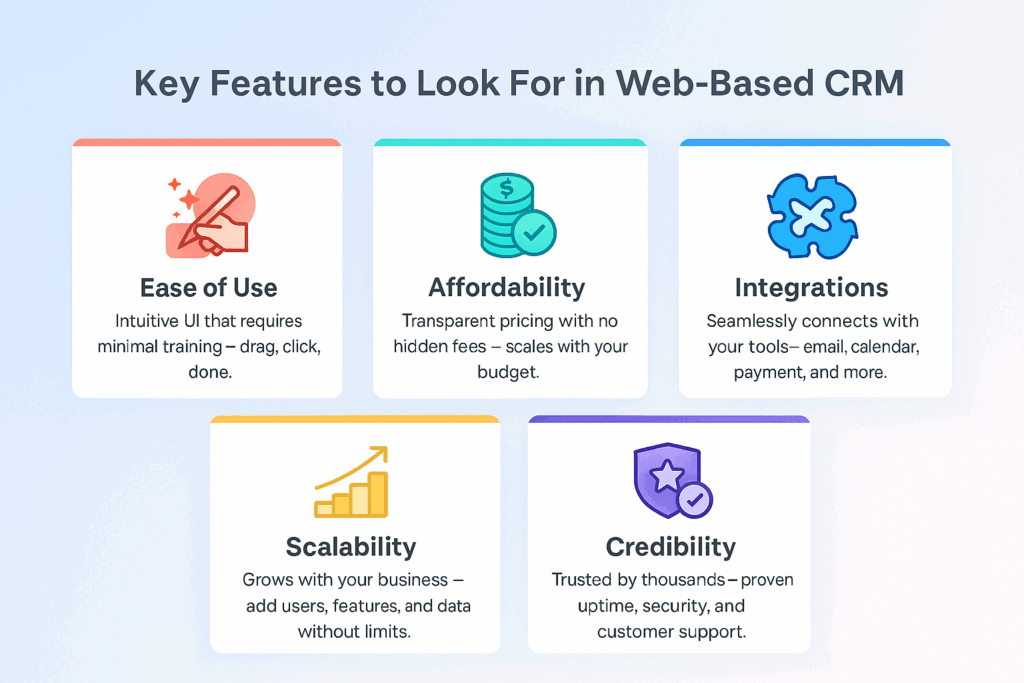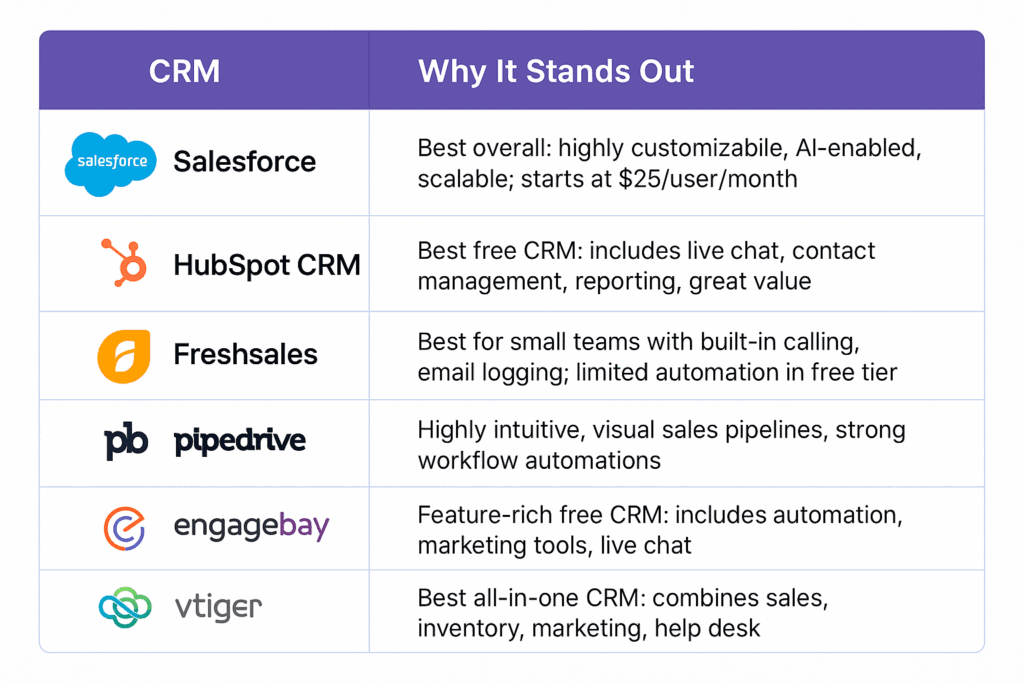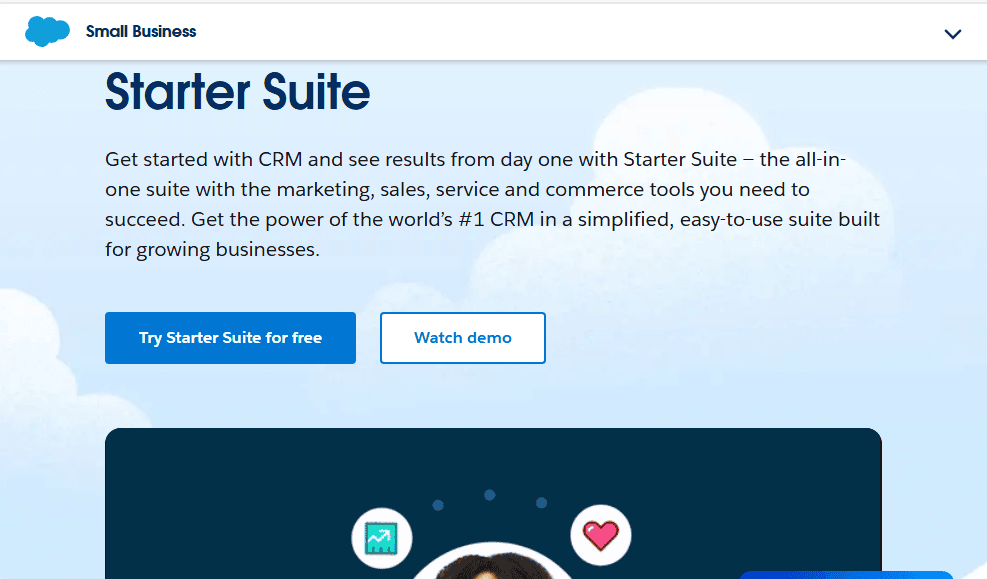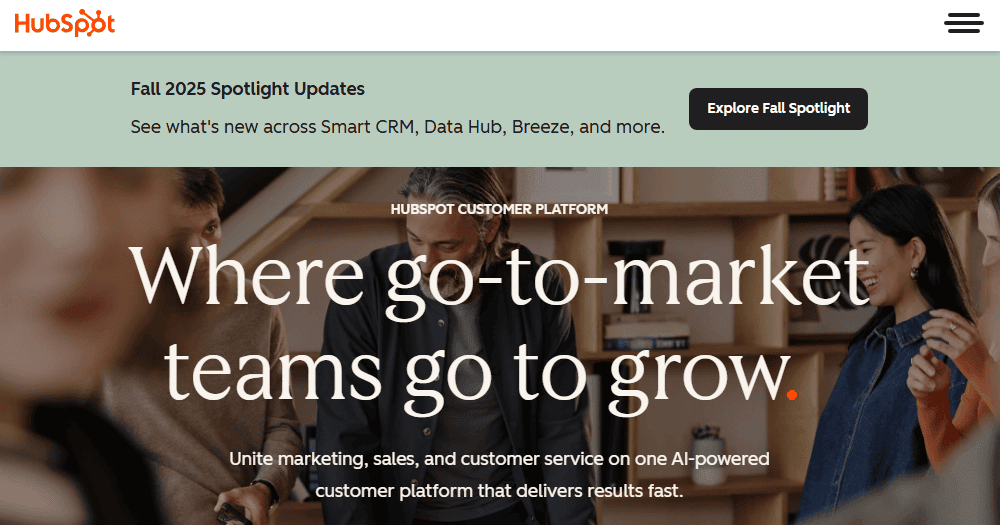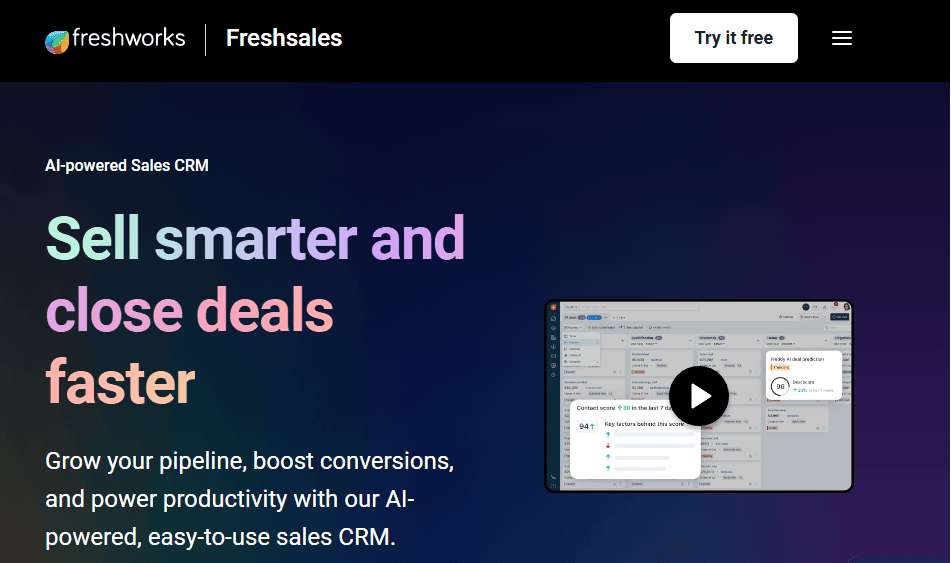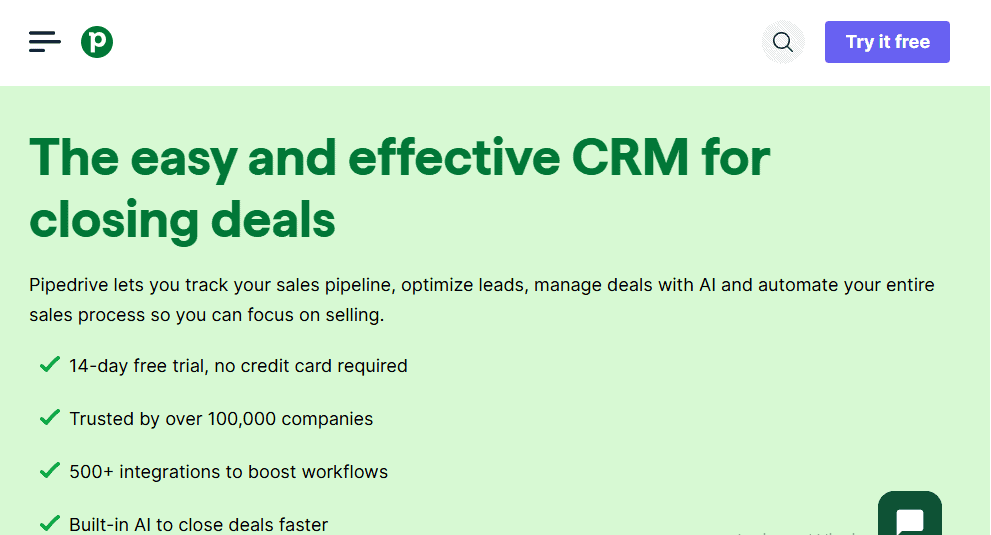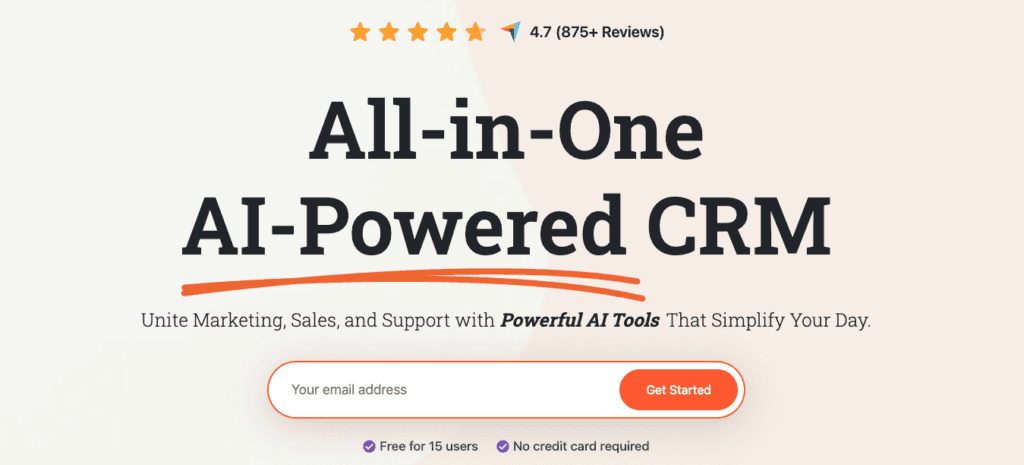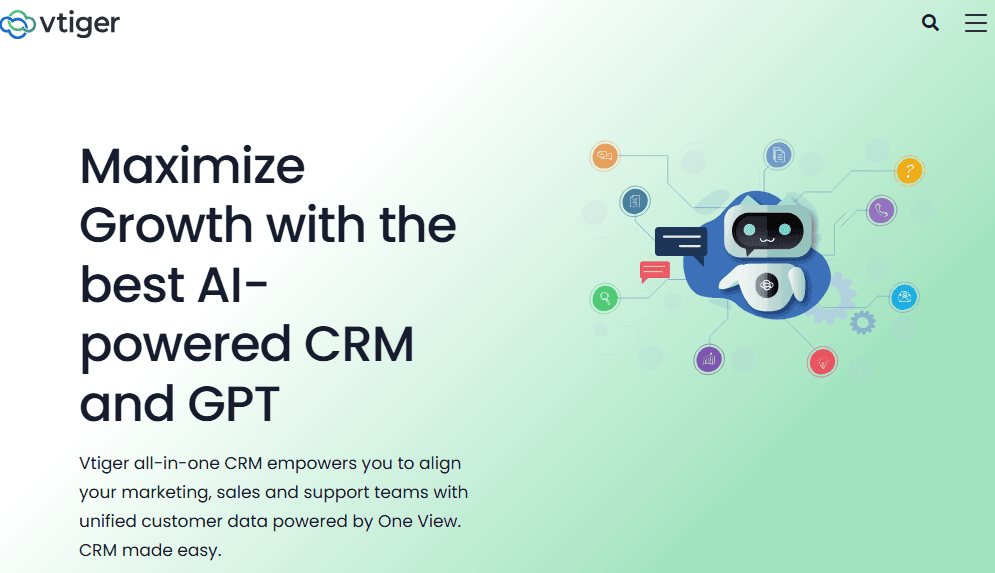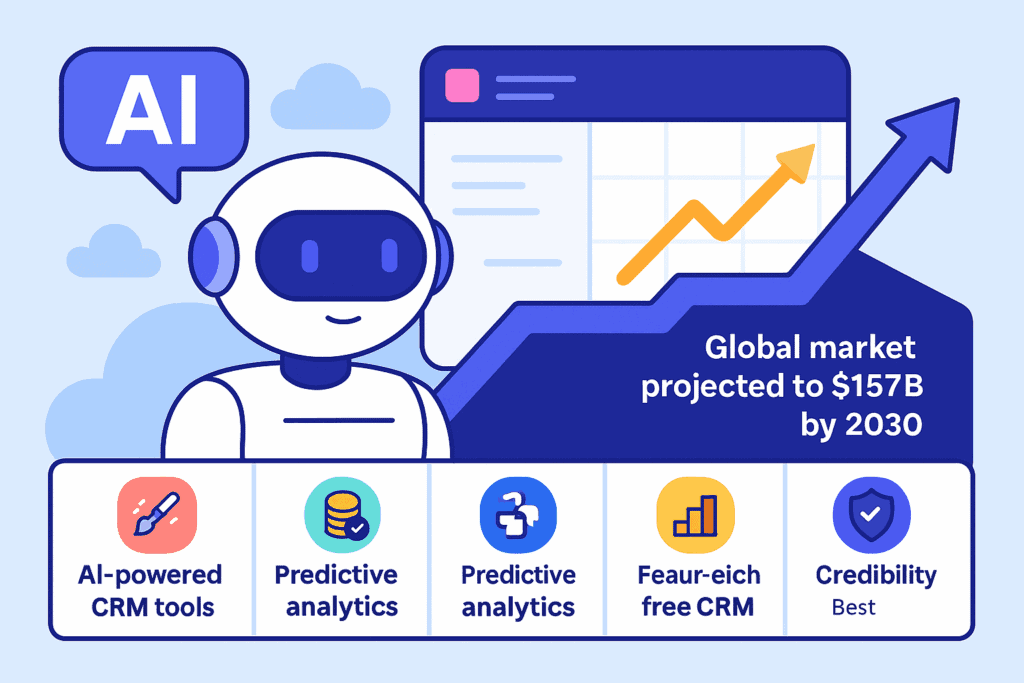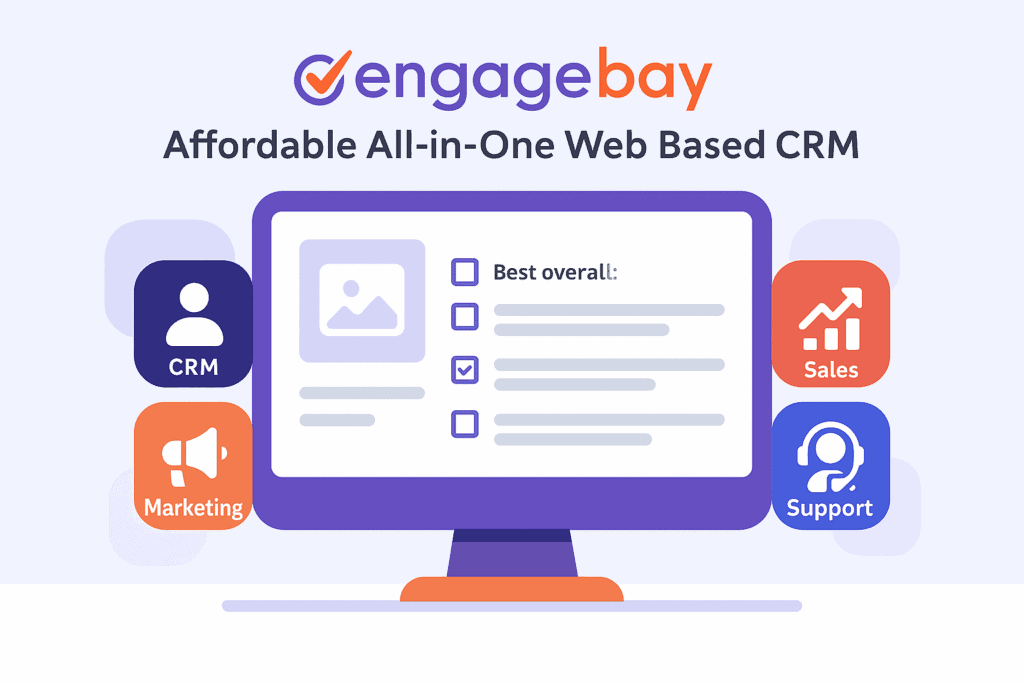Choosing the right web-based CRM for small business can feel like a huge task in recent times given the highly competitive software market.
The SaaS landscape in 2026 offers a large selection of tools promising to streamline sales, marketing, and customer support, and the market is awash with no dearth of choices to meet disparate business requirements.
In 2026, the best cloud CRM solutions offer powerful features such as automation, AI, and intuitive design; all these while trying best to remain affordable and relevant.
This guide here breaks down some of the top web CRM contenders, offering actionable insights to help you select the tool that fits your needs to a ‘T’, without the overkill.
Also Read: 8 Benefits Of Cloud CRM
Let’s get started.
Table of Contents
Web Based CRM for Small Business: What Is It?
A web-based CRM for small business is a platform that is cloud-hosted and run via a browser or an app.
These are different from legacy, traditional on-premises systems, there’s no need for servers or complex installations since all functionality resides online.
Accessibility
The biggest strength of a web-based CRM for small business is its ability to operate and access customer data anytime, from anywhere.
So, no matter whether you’re in your office, working from home, or even travelling, all you need is a desktop, laptop, tablet, or smartphone with internet access.
This convenience of flexibility is especially helpful for small businesses with remote or hybrid teams.
Some typical use cases include sales representatives updating deal stages directly from client meetings, managers reviewing dashboards on the go, and support teams resolving customer tickets independent of fixed locations.
With secure cloud access, your team stays connected and productive, irrespective of wherever they are.
Accessibility also means ensuring CRM interfaces are usable by people with disabilities, which can be evaluated using a web accessibility checker to identify issues based on the web content accessibility guidelines..
Scalability
Typically, small businesses often start with lean teams and scale steadily moving forward.
A cloud-based CRM scales effortlessly in tune with your needs, enabling you to add users, expand storage, or unlock advanced features without overhauling your system.
In contrast to traditional CRMs that require new servers or complex IT upgrades, web-based solutions are faster, far more adaptive and grow with only a few clicks.
For example, you can initially begin with simple contact management and gradually add modules for marketing automation, sales pipelines, or helpdesk support as your customer base expands.
This ensures that your phased CRM investment continues to support your growth without disruption.
Cost-Efficiency
As a startup or small business, affordability is typically a necessity, and this is where web based CRMs trump clunky, expensive legacy systems by eliminating the need for costly infrastructure.
With web-based cloud CRMs, you don’t need servers, specialized IT teams, or expensive hardware, because everything runs in the cloud on a subscription model.
Many platforms even offer free tiers, making it easy for small teams to get started without upfront costs.
Moreover, the subscription pricing models (often ranging between $10–$25 per user per month) also provide predictable expenses, which help during investment and budgeting.
Instead of heavy capital investments, with most web based CRM platforms, you pay only for what you use, freeing up resources for marketing, hiring, or product development.
Real-Time Collaboration
For small businesses, efficiency often depends on fluid teamwork. Here’s where a web-based CRM solution comes truly handy.
A web based CRM allows multiple users to update, view, and manage customer records simultaneously.
For example, when a sales rep updates a lead’s status, the marketing team immediately sees it and can adjust their follow-up campaigns.
Similarly, customer support agents can log service tickets while managers track resolution progress in real time.
This real-time synchronization prevents information silos, minimizes duplication of work, and ensures pan-departmental alignment with the latest customer interactions.
This results in faster response times, stronger collaboration, and improved customer experiences.
In short, web-based CRMs deliver enterprise capabilities on a lean budget, perfect for small businesses looking to scale faster and make an impact.
Also Read: How Small Businesses Can Provide Exceptional Customer Support
Web Based CRM for Small Business: What to Look For
Identifying and shortlisting the right web based CRM for small business begins with understanding which features actually matter.
In 2025, small teams need more than simply storing and managing contact information, they need user-friendliness, core sales and marketing tools, affordable pricing, and scalability that enables growth.
From interactive and smart dashboards and automation to integrations with email, eCommerce, and intra-office team apps, the best cloud CRM solutions deliver the value, credibility, and efficiency required for small business success.
Going forward, here’s what you should look for while choosing a good web-based CRM solution:
Ease of Use & Adoption
Small teams need solutions with intuitive interfaces and fast onboarding that enhance productivity from the onset rather than create additional overhead. Thus, a good cloud CRM software should not have a steep learning curve.
Core Capabilities
Top web based CRMs offer:
- Contact and pipeline management
- Follow-up reminders and alerts
- Reporting dashboards
- Basic automation like email triggers and task scheduling
Affordable Pricing
Free plans or low-cost tiers (around $10–$25/user/month) help businesses start lean and scale affordably.
Scalability & Integration
Your CRM should grow with you. Look for integrations with email, calendars, team tools, and eCommerce platforms.
Credibility
Prioritize CRMs backed by credible reviewers or small business testimonials, with authenticity and social proof.
Top Web Based CRMs for SMBs in 2026
Here’s how leading CRMs stack up according to recent expert reviews:
| CRM | Why It Stands Out |
| Salesforce | Best overall: highly customizable, AI-enabled, scalable; starts at $25/user/month (TechRadar) |
| HubSpot CRM | Best free CRM: includes live chat, contact management, reporting, great value (TechRadar) |
| Freshsales | Best for small teams with built-in calling, email logging; limited automation in free tier (TechRadar) |
| Pipedrive | Highly intuitive, visual sales pipelines, strong workflow automations (TechRadar, Wikipedia) |
| EngageBay | Feature-rich free CRM: includes automation, marketing tools, live chat (TechRadar) |
| Vtiger | Best all-in-one CRM: combines sales, inventory, marketing, help desk (Zapier) |
Let’s have a look at these leading web-based CRM solutions in more detail below.
Detailed Look at the Leading Web Based CRMs for Small Businesses in 2025
When it comes to selecting the right CRM, each platform offers a unique balance of features, pricing, and usability.
The best choice depends on unique variable factors such as your business size, budget, and specific needs.
Below is a closer look at some of the most popular web based CRMs for small business in 2026, including their benefits, main features, pricing, pros and cons, and who they’re best suited for.
Salesforce
Salesforce remains the most established CRM, offering unmatched scalability and customization. Its AI features help businesses predict customer behavior, streamline workflows, and personalize engagement at scale.
Main Features: Sales pipeline tracking, advanced reporting, AI recommendations, vast integration marketplace.
Pricing (2026): Starts at around $25 per user per month, scaling significantly for larger enterprises.
Pros: Highly customizable, advanced AI tools, robust ecosystem.
Cons: Higher learning curve, expensive as you scale.
Best For: SMBs aiming for rapid growth and deep customization.
HubSpot CRM
HubSpot is known for its generous free tier, making it a great entry point for small businesses. Its interface is intuitive, and it connects seamlessly with HubSpot’s marketing and sales hubs.
Main Features: Contact management, email tracking, live chat, task automation, dashboards.
Pricing (2026): Free plan available; paid plans typically range from $15 to $3600 per user per month.
Pros: Free forever plan, easy to use, strong integration with marketing automation.
Cons: Paid features can quickly become costly, limited customization in free version.
Best For: Startups and small businesses looking for a no-cost CRM that can scale with growth.
Also Read: Is HubSpot Worth It In 2025?
Freshsales
Freshsales is part of the Freshworks suite and is designed for simplicity, with built-in communication features and AI insights. It’s a fast, lightweight choice for small teams.
Main Features: Built-in telephony, email logging, workflow automation, AI-driven lead scoring.
Pricing (2026): Offers a free tier, with paid plans ranging from $18 to $83 per user per month.
Pros: Strong communication tools, affordable entry plan.
Cons: Automation is limited in lower tiers, smaller integration library.
Best For: Small teams that need calling and email tracking directly in their CRM.
Pipedrive
Pipedrive is loved for its visual, drag-and-drop pipeline design. It’s built for simplicity, allowing sales teams to focus on deals without getting bogged down in complexity.
Main Features: Pipeline management, customizable workflows, AI-powered sales assistant, integrations with email and calendars.
Pricing (2026): Starts at about $19 per user per month, with advanced plans reaching $89.
Pros: Very intuitive, affordable, strong automation options.
Cons: No free tier, limited built-in marketing tools.
Best For: SMBs prioritizing sales pipeline visibility and ease of use.
EngageBay
EngageBay shines with its all-in-one platform approach, combining CRM, marketing automation, sales tools, and helpdesk features. Its free plan is especially generous, making it appealing to budget-conscious small businesses.
Main Features: Contact management, live chat, deal pipelines, email campaigns, automation workflows, helpdesk ticketing.
Pricing (2026): Free for up to 15 users; paid plans range from $14.99 to $119.99 per user per month.
Pros: Comprehensive features even on free plans, affordable pricing, excellent automation tools.
Cons: Advanced reporting requires higher tiers, fewer third-party integrations than bigger players.
Best For: Small businesses that need an all-in-one solution without overspending.
Vtiger
Vtiger is a versatile platform that combines CRM functions with inventory, project management, and customer support, making it an all-rounder for SMBs.
Main Features: Sales tracking, marketing campaigns, support ticketing, inventory control, project collaboration.
Pricing (2026): Entry-level plans start around $15 per user per month, with advanced suites up to $58.
Pros: Multi-functional, affordable, ideal for diverse needs.
Cons: Interface feels less modern, smaller integration ecosystem.
Best For: Small to mid-sized businesses that need CRM plus inventory and project management in one package.
2026 Web-Based CRM Trends You Should Know
The way small businesses manage customer relationships is changing rapidly, and if you’re running a growing business in 2026, you need to be completely in sync with what’s happening around you.
Web-based CRMs aren’t just getting better, they are getting eerily good at predicting which leads will actually buy from you, thanks to AI that learns from your sales patterns.
Meanwhile, more businesses are ditching those clunky desktop systems and moving everything to the cloud, where teams can actually work together without sending spreadsheets back and forth via email.
Here’s the thing: If your competitors are using smart CRM tools to close deals faster while you’re still managing contacts in a notebook, you’re going to feel that gap pretty quickly.
Also Read: 12 Best Cloud CRMs For Small Business
AI-Powered Enhancements
AI is now irreversibly core to modern CRMs, far beyond simple automation:
Predictive Lead Scoring: CRMs identify leads that are most likely to convert using patterns and behavior.
Automated Segmentation: Dynamic customer groupings based on actions and engagement are being done in a click.
AI Chatbots & Virtual Agents: Context-aware bots are increasingly helping qualify leads and assist customers.
Sales Forecasting: Accurate predictions based on real-time pipeline health are being made every minute.
Personalized Messaging: Dynamic emails tailored by behavior and preferences are being compiled and sent continuously.
Sentiment Analysis: Detection of emotional tone in communications are helping deliver superlative customer experiences.
Smart Workflow Recommendations: Systems are now suggesting the optimal next actions and automating admin tasks.
In fact, businesses using generative AI in CRM are 83% more likely to exceed their sales goals, with AI lead scoring increasing conversions by 20% and improving forecast accuracy by 40% (Kixie)
Cloud CRM Market Growth Stats
The CRM market is booming, and here are some stats to demonstrate that:
Global CRM market was valued at $101.41 billion in 2024, projected to reach $262.74 billion by 2032, CAGR ~12.8% Fortune Business Insights.
Cloud-only CRM is expected to grow from $111 billion in 2024 to $252.7 billion by 2030 (CAGR ~14.7%) 360iResearch
SaaS market, the backbone of many web-based CRMs, is forecasted to reach $408 billion in 2025 and more than $1.25 trillion by 2034 Precedence Research.
AI Adoption Is Accelerating
AI isn’t a niche, it’s mainstream:
Fortune 500 companies like Zurich Insurance have launched AI CRM systems that reduce service times by 70% Business Insider.
Salesforce’s new “Agentforce” AI system resolves 84% of support queries automatically and handles 66% of website inquiries for clients The Australian
Why EngageBay Shines for Small Businesses
Among the many web-based CRMs for small business, EngageBay has carved a niche for itself as one of the most dependable, affordable and powerful all-in-one platforms.
Particularly designed with small teams in mind, it combines CRM, marketing, sales, and support features in a single, easy-to-use solution.
With a generous free plan, smooth onboarding, and scalability that grows with your business, EngageBay offers the perfect balance of functionality and cost-effectiveness, making it a trusted choice for startups and SMBs in 2026.
EngageBay is frequently praised alongside top CRM tools for its affordability and depth of features (Salesflare Blog TechRadar)
Start with EngageBay today and experience growth without complexity.
Wrap Up
In 2026, finding the ideal web-based CRM for small business means appreciating the balance between cost, ease of use, AI readiness, and growth potential.
Whether you lean toward the powerful customization of Salesforce, the generous free tier of HubSpot, or the visual simplicity of Pipedrive, there’s a tool tailored for your business.
But if you’re after an all-in-one, affordable, and future-ready CRM, EngageBay offers compelling strength with minimal complexity.
A cloud-hosted platform that lets small businesses manage contacts, track deals, automate tasks, and analyze performance, accessible via the web with no desktop installation.
Yes, HubSpot CRM and EngageBay both offer robust free tiers, with features like contact management, reporting, marketing, and live chat.
Many CRMs start around $10–$15/user/month for basic plans, EngageBay’s free plan and Pipedrive’s lower tiers are among the most budget-friendly.
Yes, most (e.g., HubSpot, Pipedrive) offer integrations with email, calendars, productivity tools, Zapier, and popular third-party apps.
AI now powers lead scoring, segmentation, predictive analytics, chatbots, and automation suggestions, making CRMs smarter and more efficient in 2025
